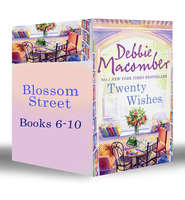По всем вопросам обращайтесь на: info@litportal.ru
(©) 2003-2025.
✖
Susannah's Garden
Автор
Год написания книги
2019
Настройки чтения
Размер шрифта
Высота строк
Поля
Chrissie noticed that his hand tightened around the steering wheel. What had happened between him and Katie the night before? She didn’t mention how long he’d spent at the airport. Originally she was supposed to tag along, but Katie had a lot of stuff and it would’ve been a tight fit in a small car, so she’d stayed behind. That, apparently, had been a mistake.
Nothing had happened, she told herself. Chrissie couldn’t believe Jason would do that to her. Besides, Katie was one of her best friends. They planned on renting a house together in a few months. The last thing Katie would do was steal Jason away from her.
No, neither of them would betray her, Chrissie thought firmly.
The rest of the drive was completed in an uncomfortable silence.
Jason drove up to the curb at the airport and Chrissie climbed out as soon as he came to a stop. Without a word, Jason jumped out and opened the trunk, heaving her suitcase onto the ground.
“The summer will go fast,” he said with false cheerfulness. “You’ll be back here in no time.”
“Right,” she agreed with the same fake exuberance. “No time at all.”
Jason nodded. “I’ll call you soon.”
She nodded, too, and dragged her bag onto the sidewalk. “I guess I’d better get inside.”
“Have a great summer.”
She tried to smile. “You, too.”
He leaned forward and kissed her, but it fell short of just about every other kiss they’d exchanged. She was afraid she was losing Jason and it broke her heart.
CHAPTER
4
Susannah wasn’t looking forward to this trip back to Colville. The eastern Washington community was like small towns all over the country. Her eyes went immediately to the town clock, which featured a statue of a frontiersman, as she drove through the city center. Colville with its JCPenney store on Main Street was the big city to many of the smaller communities surrounding it. There was a traffic roundabout now, but while she was growing up, Colville had the only traffic light in Stevens County.
It was small-town America at its best.
And its worst.
The drive took seven hours with a brief lunch break. As Susannah rolled into the outskirts of town, her tension grew. She turned the music up louder, trying to lose herself in the insistent beat of the Rolling Stones. The first building she passed was the Burger King restaurant, which had closed its doors. It was probably the only franchise in the entire chain to go out of business. The bowling alley came next. The sign out front listed the special of the day as a breakfast of two eggs, toast and coffee for $2.99—up from the $1.99 of her childhood. That had been the special for as long as Susannah could remember.
She drove past Colville Mortuary, which had once been owned by her uncle Henry, who was long dead now. Susannah had grown up with hordes of cousins, none of whom had settled in the area. They, too, had no reason to stay in Colville.
As she continued down Main Street, she felt a growing sense of dread. Getting her mother into an assisted-living complex wasn’t a prospect she relished. This anxiety, however, resulted from more than the difficult task that awaited her. When Susannah left Colville for college, she’d never looked back. Oh, she’d returned any number of times over the years, but whenever she did, the familiar depression returned, too. Part of that had to do with her brother’s death; he was killed in a car accident the year she turned eighteen. She was in a French boarding school at the time, and her father’s phone call had come in the middle of the day. A call from America was sure to be bad news. And it was. It’d been the worst news of her life. Her brother, older by three years, had died in a crash on a notoriously bad curve just outside Colville.
Susannah’s world changed forever that day. If her brother’s death wasn’t devastating enough, her father had refused to fly her home for the funeral. She never forgave him for that. He’d been the one who insisted on shipping her off to France in the first place. Then, while she was so far from home, her whole life had collapsed. Susannah was never the same afterward. Her parents had never recovered, either.
It seemed to her that whatever happiness her parents had shared vanished after Doug died. Joy fled from their lives, leaving their marriage stark and empty. That was Susannah’s perception, although her mother had a different version of events, a version Susannah considered a case of denial. But then, how could Vivian have stayed with her husband if she’d been honest about her unhappiness—and his role in it?
When Susannah had returned from her year away, she could barely tolerate living in the same house. After she left for college, she didn’t even consider moving back.
Doug’s death wasn’t the only reminder she brought with her. She couldn’t come here and not think about Jake Presley—especially now that he’d invaded her dreams on a nightly basis. Any number of times over the years she’d wondered about him, but never more than in the last few months. The sweet tenderness of her first love had been ruined by her father, too.
Susannah wanted to believe that Jake was happy, a husband and father, and successful in whatever field he’d chosen. It’d taken her a long time to get over him—but she had. Or so she’d thought.
Shaking her head to clear her mind, Susannah slowed her car to the reduced thirty-five-mile-an-hour speed limit. She passed Benny’s Motel and the Safeway store where her mother had shopped for fifty years. The four-block-square City Park was behind the motel. Farther down the street was Ole King Cole’s restaurant. Every year on Mother’s Day, that was where her father took her mother for dinner. Either there or Acorn’s.
Refusing to be ambushed by the past, Susannah forced herself to stare straight ahead. When she reached the end of Main, she ventured up the hill toward ChestnutAvenue and her childhood home.
The light was on, although it was barely five o’clock in the afternoon and summer-bright. Susannah pulled into the driveway and turned off the engine. The screen door opened instantly, as if her mother had been standing on the other side waiting for her arrival.
The house, built in 1960, was constructed of brick. At the time it had been one of the new ranch-style homes, among the most elaborate in town. It had four bedrooms, one of which her mother used for crafts, plus a finished basement with rec room and laundry.
And the garden. Her mother’s beautiful garden. Vivian liked to sit there in the cool of the evening and read or knit. Her father had installed lighting on the back deck for that very reason.
“Susannah.” Vivian held out her arms as Susannah climbed from the car.
Bounding up the front steps, she was shocked to see how frail her mother had become, especially in such a short time. She appeared to have aged ten years since Susannah’s visit in March. Mrs. Henderson was right; Vivian had lost weight, so much that her clothes hung on her. The belted housedress bagged at the waist and her stockings were wrinkled and loose. Susannah wrapped her arms gently around her mother and felt immersed in guilt. She should’ve come sooner, should have realized how poorly her mother was doing.
“I’m so glad you’re here,” Vivian said.
“I’m glad I’m here, too,” Susannah told her. Joe would be fine without her for a few weeks. The children, too. But Susannah’s mother needed her.
“Come inside,” Vivian urged. “I made iced tea.”
Susannah slipped her arm around her mother’s narrow waist and together they walked inside. She was surprised to see a few newspapers scattered on the steps, still in their protective plastic sleeves. This was unlike her meticulous mother.
The house was much as she remembered it from her last visit. The chair where her father had watched television every night sat empty. The crocheted doily pinned against the back was still in place.
Even in his retirement, the television wasn’t allowed on before the five o’clock news. The judge had decreed it and no one dared question his decisions, least of all her mother. Susannah wondered if Vivian watched daytime programs now that her husband was gone. She suspected not. Old habits die hard.
The kitchen table was set with dishes and silverware. “You didn’t make dinner, did you?” Susannah asked.
Her mother turned from the refrigerator and frowned. “You told me not to.”
“I was planning to take you out to eat, anyplace you want.”
“Oh, good. I was afraid I did something wrong.”
“No, Mom, you didn’t do anything wrong.”
Her smile seemed so fragile, so tentative. After all these years of marriage she was lost without George. Her dependence on him had been absolute, Susannah thought. She blamed her father for that more than she did her mother.
“Sit down and tell me about the children,” her mother said, pulling out a chair at the kitchen table for Susannah. The round oak table was an antique now and the chairs along with it.
Stepping over to the counter, her mother filled tall glasses and brought them to the table. Then she sat down, looking expectantly at Susannah.
Susannah sipped her tea. “Brian has a summer job in construction. He’s thrilled and the money is excellent.”
Her mother smiled with approval. “And Christine?”
“Joe’s picking her up from the airport this afternoon.”
Her mother’s smile faded. “She was away?”











